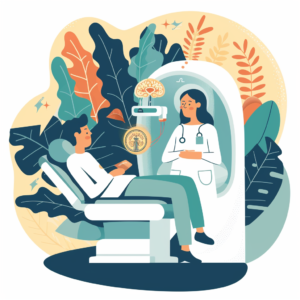Completing the Course
There is no medical harm in completing all 36 TMS sessions to obtain a definitive answer, though practical considerations like scheduling and logistics may come into play. While a small minority of patients respond later in the course, most do not experience improvement if there has been zero change by session 20.
Reevaluating Your Diagnosis and Contributors
I revisit the diagnosis and consider contributing factors such as trauma, personality traits, and active substance use. I also coordinate closely with your primary psychiatrist, who can provide insight into your long-term patterns and past treatment responses.

Next-Line Treatment Options for Resistant Depression
If TMS hasn’t led to meaningful improvement, it’s important to consider additional steps to address treatment-resistant depression and ensure a comprehensive approach.
- Medication strategies you may not have tried, including older classes such as MAOIs.
- Evidence-based psychotherapy, including approaches tailored to trauma or personality patterns.
- ECT for severe, treatment-resistant depression. ECT remains the most effective acute treatment we have, with the highest remission rates across modalities.
Author: Dr. Hong Yin

Hong Yin, MD, has been a practicing medical professional in the Milwaukee community since 2012. She understands that your health and wellness concerns extend beyond routine medical care. She’s a highly trained, board-certified psychiatrist who provides an array of comprehensive services and procedures to help people overcome mental health problems.
